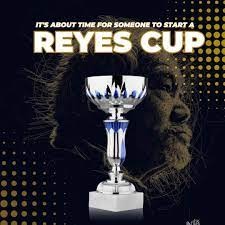Team Asia Battles Team Europe in Epic Reyes Cup Collision!




Table of Contents

Reyes Cup Showdown: Team Asia and Europe in Billiards War!
Introduction to the Reyes Cup
The Reyes Cup is a prestigious international billiards tournament that showcases the talents of some of the world’s best players in a thrilling competition.
Named after the legendary Filipino cue artist Efren Reyes, often referred to as “The Magician,” the tournament pays homage to his significant contributions to the sport and his remarkable achievements in billiards.
This annual event brings together top teams from Asia and Europe, creating an electrifying atmosphere as they compete for glory.
The Reyes Cup is not only a test of skill but also a celebration of the camaraderie and sportsmanship that billiards embodies.
The tournament format typically includes various disciplines of billiards, such as nine-ball and ten-ball, challenging players to demonstrate their versatility and strategic prowess.
Fans eagerly anticipate the matches, which feature intense rivalries, nail-biting moments, and spectacular shots, making the Reyes Cup a must-watch for billiards enthusiasts.
As the competition unfolds, players strive to etch their names in the history of the Reyes Cup, further elevating the profile of billiards on the global stage.
With its rich history and the caliber of talent on display, the Reyes Cup is a defining event in the billiards calendar, captivating audiences and inspiring future generations of players.
Overview of the Inaugural Reyes Cup
The Reyes Cup marks a historic moment in the world of billiards, showcasing the finest talent from Asia and Europe.
This inaugural event is designed to celebrate the sport’s rich heritage while fostering international competition.
With top players representing their continents, the Reyes Cup is set to captivate audiences worldwide.
The Significance of the Reyes Cup in Billiards History
Named after the legendary Efren “The Magician” Reyes, the Reyes Cup symbolizes not only competitive spirit but also the unification of billiards enthusiasts across borders.
This tournament aims to establish a prestigious tradition in the billiards community, similar to other notable sporting events like the Ryder Cup in golf.
How the Reyes Cup Got Its Name: Honoring Efren “The Magician” Reyes
Efren Reyes is widely regarded as one of the greatest billiards players of all time, known for his extraordinary skills and sportsmanship.
By naming the cup after him, organizers pay tribute to his contributions to the sport and his role in elevating the global profile of billiards.
Team Asia vs Team Europe: The Ultimate Clash
Key Players Leading Team Asia
Team Asia boasts a lineup of highly skilled players, including:
- Ko Pin-Yi: A multiple-time World 9-Ball Champion, known for his aggressive playstyle.
- Chang Jung-Lin: A rising star who combines tactical prowess with powerful shots.
Karl Boyes’ Command of Team Europe
As captain of Team Europe, Karl Boyes brings extensive experience and strategic insight.
With a solid track record in international competitions, his leadership will be crucial in guiding the team to victory.
Historic Rivalries Between Asian and European Players in Billiards
The rivalry between Asian and European players has deep roots, characterized by numerous unforgettable matches and personal rivalries that have shaped the sport.
The Reyes Cup aims to reignite this competitive spirit and foster new narratives in billiards history.
The Format of the Reyes Cup
Breakdown of the Rules and Scoring System
The Reyes Cup features a blend of traditional and innovative formats to keep fans engaged:
- Match Duration: Each match consists of a best-of-11 format, where the first player or team to win six games is declared the winner.
- Scoring: Points are awarded based on match wins, with additional bonuses for outstanding individual performances.
Match Types: Singles, Doubles, and Team Events
The tournament will include various match formats, enhancing the excitement:
- Singles Matches: One-on-one battles between top players.
- Doubles Matches: Teams of two competing against each other.
- Team Events: A culmination of individual matches contributing to the overall team score.
How the Teams Were Selected: A Blend of Veterans and Rising Stars
Each team comprises seasoned professionals and emerging talents, creating a balanced dynamic that enhances competition.
The selection process considers past performances, rankings, and growth potential, ensuring the best representation of each continent.
The Magician’s Influence: Efren Reyes’ Legacy in Billiards
Efren Reyes’ Impact on Team Asia’s Strategy
Efren Reyes’ unique style and tactical thinking have inspired many players in Team Asia.
His ability to read the game and execute complex shots serves as a model for aspiring billiards professionals.
The Master of Tactical Play: Reyes’ Unmatched Skills
Reyes is celebrated for his strategic approach to the game, often outsmarting opponents with calculated plays.
His influence extends beyond the table, as he serves as a mentor to many young players in Asia.
Why Reyes is Revered as a Legend Across Both Teams
Reyes’ reputation transcends borders, making him a beloved figure not only in Asia but also in Europe.
His sportsmanship and skill have earned him respect from players and fans alike, uniting billiards enthusiasts across continents.
The Fierce Competitors: Team Asia’s Standout Players
A Deep Dive into Ko Pin-Yi’s Impressive Career
Ko Pin-Yi, known for his exceptional cue ball control and aggressive tactics, has multiple championships under his belt.
His journey in billiards showcases resilience and determination.
How Chang Jung-Lin’s Power Game Shapes Team Asia
Chang Jung-Lin combines strength with finesse, often dominating opponents with powerful shots.
His contribution to Team Asia is vital, particularly in high-pressure situations.
The Rising Stars: Promising Players to Watch on Team Asia
Team Asia includes several young talents poised to make their mark, such as:
| Player Name | Age | Notable Achievements |
|---|---|---|
| Soo Kyoung | 21 | Junior World Champion |
| Tao Yang | 19 | Asian Games Gold Medalist |
Team Europe’s Top Talents: Stars Ready for Battle
Karl Boyes’ Tactical Leadership and Experience
As a seasoned competitor, Boyes’ leadership will be pivotal.
His strategic insights and ability to remain calm under pressure make him an ideal captain for Team Europe.
The Skill and Precision of Jayson Shaw
Jayson Shaw is known for his remarkable shot-making ability and precision.
His performance could be a game-changer for Team Europe, particularly in crucial matches.
Veteran Players vs New Blood: Europe’s Balanced Lineup
Team Europe features a mix of veterans and emerging stars, providing a well-rounded team capable of adapting to various situations on the table.
Key Matchups to Watch
Anticipated Showdown: Ko Pin-Yi vs Jayson Shaw
This matchup promises to be a highlight, pitting Ko’s aggressive style against Shaw’s precision and skill.
Fans can expect fireworks as these two titans clash.
Tactical Battles: Karl Boyes vs Chang Jung-Lin
The strategic play between Boyes and Chang will be fascinating, showcasing contrasting styles that could dictate the flow of the match.
Doubles Strategy: How Team Chemistry Will Play a Role
Team dynamics will play a crucial role in doubles matches, where communication and synergy between players can lead to crucial advantages.
Training and Preparation: How Teams Are Getting Ready
Intense Practice Sessions: What the Teams Are Focusing On
Both teams are engaging in rigorous practice sessions, focusing on specific skills and strategies to optimize their performances.
| Focus Area | Team Asia | Team Europe |
|---|---|---|
| Cue Ball Control | Emphasis on Spin | Focus on Positioning |
| Shot Selection | Aggressive Play | Tactical Approaches |
| Mental Preparation | Visualization Techniques | Mindfulness Training |
Mental Toughness: Psychological Preparation for High-Stakes Matches
Mental resilience is essential for success.
Both teams are employing psychological techniques to handle pressure and maintain focus.
Strategies Shaping the Teams’ Game Plans
Game plans are tailored based on opponents’ strengths and weaknesses.
Coaches are analyzing past performances to devise effective strategies.
The Pressure of Performing on a Global Stage
How the Reyes Cup Raises the Stakes for International Competitions
The Reyes Cup elevates the level of competition, bringing together the best players from Asia and Europe.
This high-stakes environment creates exciting matchups and intense rivalries.
Nerves, Focus, and Team Spirit: The Mental Game of Billiards
Players must navigate the mental challenges of competition, balancing nerves with focus.
Team spirit plays a critical role in fostering camaraderie and support.
Previous Global Events and Their Influence on the Reyes Cup
The success of similar events in other sports highlights the potential impact of the Reyes Cup on the global billiards community, encouraging growth and participation.
Past Successes of Team Asia in International Competitions
Team Asia’s Dominance in Recent Tournaments
Team Asia has consistently performed well in international tournaments, showcasing their strength and skill on the world stage.
Notable Wins that Make Team Asia a Force to Reckon With
Recent victories against top teams have solidified Team Asia’s reputation as a formidable competitor in billiards.
What Team Asia Must Do to Overcome Europe
To secure victory, Team Asia must focus on teamwork, communication, and executing their game plans effectively against a strong European lineup.
Team Europe’s Strong Track Record in Billiards
Europe’s Winning Legacy in Global Billiards Events
Team Europe has a rich history of success, consistently placing high in international competitions and showcasing top-tier talent.
Karl Boyes’ Personal Success Stories on the World Stage
Boyes’ accomplishments include multiple European titles, adding to his credibility as a leader and competitor in the Reyes Cup.
Europe’s Path to Victory: Strengths and Weaknesses
While Team Europe boasts strong individual players, they must work on their team cohesion to maximize their potential.
Billiards War: What Makes This Showdown Unique
The Tactical Chess Match of High-Level Billiards
Billiards is often described as a game of chess with a cue. The strategic nature of the sport makes every shot and decision critical.
Comparing Team Asia and Europe’s Contrasting Play Styles
Team Asia is known for its aggressive tactics, while Team Europe often employs a more calculated approach. This clash of styles will be a focal point of the tournament.
The Emotional and Cultural Impact of the Reyes Cup
The Reyes Cup transcends sport, promoting cultural exchange and camaraderie among players and fans from different regions.
The Role of Team Captains: Leadership Under Pressure
Karl Boyes as Team Europe’s Fearless Leader
Boyes’ experience and calm demeanor under pressure make him an effective captain, capable of motivating his team during crucial moments.
Leadership and Inspiration: Key Figures Guiding Team Asia
Team Asia’s captains embody resilience and skill, inspiring younger players to elevate their game and embrace the challenge ahead.
Strategic Decisions: How Captains Will Influence the Outcome
Captains play a pivotal role in shaping the direction and success of their teams during the Reyes Cup.
Their strategic decisions can greatly influence match outcomes and team dynamics. Here are key areas where captains can make an impact:
Match Pairings and Lineups
One of the most critical responsibilities of a captain is determining the match pairings and lineups for each round.
This involves analyzing opponents’ strengths and weaknesses, as well as considering the form and skills of their own players.
For instance, placing the strongest players against an opponent’s weaker links can create an early advantage for the team.
In-Match Adjustments
Captains must be prepared to make real-time adjustments based on the flow of the match.
If a player is struggling or if the opponent gains momentum, the captain may decide to switch strategies, alter pairings, or provide motivational support to help their team regain focus.
The ability to read the game and react accordingly can be the difference between victory and defeat.
Team Morale and Motivation
A captain’s leadership extends beyond technical decisions.
Maintaining team morale and motivation is crucial in high-pressure situations.
Effective captains foster a positive environment, encouraging players to support one another and maintain confidence.
This can be especially important during critical matches where nerves may impact performance.
Strategy Development
Before the tournament begins, captains collaborate with coaches to develop comprehensive strategies tailored to their opponents.
This includes deciding on aggressive vs. defensive play styles, shot selection, and how to handle specific match formats (singles, doubles, etc.).
The captain’s understanding of each player’s strengths and weaknesses allows for the creation of a cohesive game plan that maximizes their team’s chances of success.
Communication and Leadership
Strong communication skills are essential for a captain.
They must articulate strategies clearly, provide constructive feedback, and ensure every player understands their role.
A captain’s ability to communicate effectively can help in aligning team efforts and fostering a sense of unity, which is critical during competitive events.
Conflict Resolution
In any competitive environment, tensions may arise among team members, especially during high-stakes matches.
A good captain acts as a mediator, resolving conflicts quickly and efficiently to keep the focus on the game.
This ensures that the team remains cohesive and focused on their shared goal.
Tips for improving your billiards game, whether you’re a beginner or looking to refine your skills:
1. Master Your Stance
- Balance: Stand with your feet shoulder-width apart for stability. Your weight should be evenly distributed.
- Comfortable Position: Find a stance that feels natural. Your dominant foot should be slightly forward.
- Knees Slightly Bent: This will help you maintain balance and flexibility as you shoot.
2. Grip the Cue Correctly
- Hold with the Back Hand: Your grip should be relaxed, not too tight. Use your thumb and fingers to cradle the cue.
- Front Hand Bridge: Create a solid bridge with your front hand, either an open or closed bridge, to guide the cue’s path.
3. Align Your Shot
- Eye on the Target: Focus on the object ball you intend to hit, not just the cue ball. This helps improve your aim.
- Line Up Your Cue: Visualize a straight line from your cue ball to the target ball and then to the pocket.
4. Practice Your Stroke
- Smooth and Controlled: A good stroke is smooth and controlled. Avoid jerky motions to maintain accuracy.
- Follow-Through: After striking the cue ball, your cue should continue to move forward. This helps with power and accuracy.
5. Understand Spin and Angles
- Use Spin Wisely: Learn how to apply topspin, backspin, and sidespin to control the cue ball’s movement.
- Angle Awareness: Understand the angles of the table and how they affect shot outcomes. Practice banking and kicking shots.
6. Control the Cue Ball
- Position Play: Focus on where you want the cue ball to go after your shot. Good position play sets you up for your next shot.
- Practice Soft and Firm Shots: Being able to control the speed of your shots is crucial. Practice both softer and firmer strokes for different scenarios.
7. Develop a Pre-Shot Routine
- Consistency: Having a consistent routine before each shot can help improve focus and reduce nervousness.
- Visualization: Visualize the shot you’re about to take and imagine the cue ball’s path.
8. Focus on the Mental Game
- Stay Calm Under Pressure: Keep your emotions in check. If you make a mistake, don’t dwell on it—focus on the next shot.
- Positive Attitude: Maintain a positive mindset. Confidence can significantly improve your performance.
9. Practice Regularly
- Variety of Shots: Spend time practicing different types of shots, including straight shots, cut shots, and combination shots.
- Play Against Others: Competing with friends or other players can help you apply your skills and learn new techniques.
10. Learn from Others
- Watch Professionals: Observe professional matches to learn different strategies and techniques.
- Ask for Feedback: Don’t hesitate to seek advice from more experienced players or instructors.

You may also like: Legit Pinoy
Frequently Asked Questions
What is the difference between billiards, pool, and snooker?
Billiards: This term often refers to games played on a table without pockets, such as carom billiards, where players score points by bouncing the cue ball off the other balls.
Pool: This is a popular variant that is played on a table with six pockets. The most common games include Eight-Ball, Nine-Ball, and Ten-Ball.
Snooker: Played on a larger table with smaller pockets, snooker uses 21 balls (15 reds, 6 colors, and a cue ball). The goal is to score points by potting balls in a specific order.
How do I choose the right cue stick?
Length: Choose a cue that matches your height and playing style. Standard cues range from 57 to 59 inches long.
Weight: Most cues weigh between 18 to 21 ounces. Lighter cues are better for finesse shots, while heavier cues can provide more power.
Tip Size: Tips typically range from 12mm to 14mm in diameter. A smaller tip offers better control for precision shots, while a larger tip provides a bigger striking surface.
What are the basic rules of pool?
Objective: In games like Eight-Ball, the goal is to be the first to legally pocket all of your designated balls (solid or striped) and then the eight ball.
Turns: Players take turns shooting. If a player fails to make a legal shot, the turn passes to the opponent.
Fouls: Common fouls include failing to hit your own balls first, not contacting a ball at all, or scratching the cue ball (sending it into a pocket).
How can I improve my billiards skills?
Practice Regularly: Consistent practice helps develop muscle memory and improves shot accuracy.
Study Techniques: Watch instructional videos or read books on billiards techniques to learn new skills and strategies.
Play with Others: Competing against different players exposes you to various playing styles and can help you adapt your game.
What are the common types of billiards games?
Eight-Ball: Players aim to pocket all of their designated balls (either solids or stripes) and then the eight ball to win.
Nine-Ball: Players must hit the balls in numerical order, with the goal of pocketing the nine ball.
Straight Pool: Players can pocket any ball on the table and score points for each ball pocketed, with the aim of reaching a predetermined score.
Conclusion
Billiards is a captivating game that blends skill, strategy, and precision, making it popular among players of all ages and skill levels. Understanding the differences between billiards, pool, and snooker enhances appreciation for the sport while knowing the basic rules allows for enjoyable play. Choosing the right equipment, particularly the cue stick, can significantly impact performance, and regular practice is essential for honing your skills.
By exploring common types of billiards games and implementing effective strategies, players can elevate their game and enjoy competitive matches with friends and opponents. Whether you’re a casual player or an aspiring professional, mastering the fundamentals of billiards opens the door to endless enjoyment and challenges. Embrace the game, keep learning, and most importantly, have fun at the table!
Resources
- https://matchroompool.com/reyes-cup/the-inaugural-reyes-cup-event-guide/
- https://www.azbilliards.com/tournament/230654-reyes-cup/
Related Searches
- Reyes Cup 2024 schedule
- Reyes Cup 2024 venue
- Reyes Cup 2024 tickets
- Reyes Cup 2024 players list
- Reyes Cup wiki
- Reyes Cup Matchroom
- Reyes Cup Team Asia
- Reyes Cup billiards
We Also Recommend
About The Author
-
9PH2 Casino: Your Winning Destination | Get 777 Bonus Now
9ph2 Casino: Your Go-To Destination for Winning | Get 777 Bonus! 9ph2 Casino: ⭐️⭐️⭐️⭐️⭐️ Win Rates 99.99% Entertainment that is […]
-
Luxjili Casino | Play Free 777 Slots & Win Big Today!
Luxjili: Your Gateway to Thrilling Online Gaming Luxjili Casino: ⭐️⭐️⭐️⭐️⭐️ Win Rates 99.99% Entertainment that is dependable and trustworthy.Get Your […]
-
Premyo77 Casino | Free 777 | Play & Win Big Today!
Premyo77: Your Guide to Online Gaming in the Philippines Premyo77 Casino: ⭐️⭐️⭐️⭐️⭐️ Win Rates 99.99% Entertainment that is dependable and […]
-
PAXJILI
PAXJILI Casino – Top Games, Big Wins & Exclusive Bonuses Pax Jili Online Casino: ⭐️⭐️⭐️⭐️⭐️ Win Rates 99.99% Disclaimer: Gambling involves […]
-
Nice88jili – Your Trusted Casino & Slot Experience
Nice88jili – Your Trusted Casino & Slot Experience Nice88jili Online Casino: ⭐️⭐️⭐️⭐️⭐️Win Rates 99.99% Disclaimer: Gambling involves risk. Please play responsibly. […]
-
Phswerte777: Online Gaming & Casino Platform Guide
Phswerte777: Online Gaming & Casino Platform Guide Phswerte777 Online Casino: ⭐️⭐️⭐️⭐️⭐️Win Rates 99.99% Disclaimer: Gambling involves risk. Please play responsibly. Only […]

As a sports enthusiast turned professional writer, James Reid brings a unique blend of passion and expertise to his craft. With three years of dedicated experience in sports journalism, James has honed his skills in capturing the essence of sporting events and conveying their significance to readers. From the thrill of the stadium to the intricacies of player dynamics, James navigates the world of sports with an insightful eye and a compelling voice.
Driven by his love for both the written word and the world of athletics, James has established himself as a trusted source for sports commentary and analysis. Whether delving into the tactics of a winning team or uncovering the stories behind the athletes, James’s articles resonate with readers, offering not just information but an immersive experience. With each piece, James aims to not only inform but also inspire, sharing the enduring excitement and camaraderie that sports evoke.
